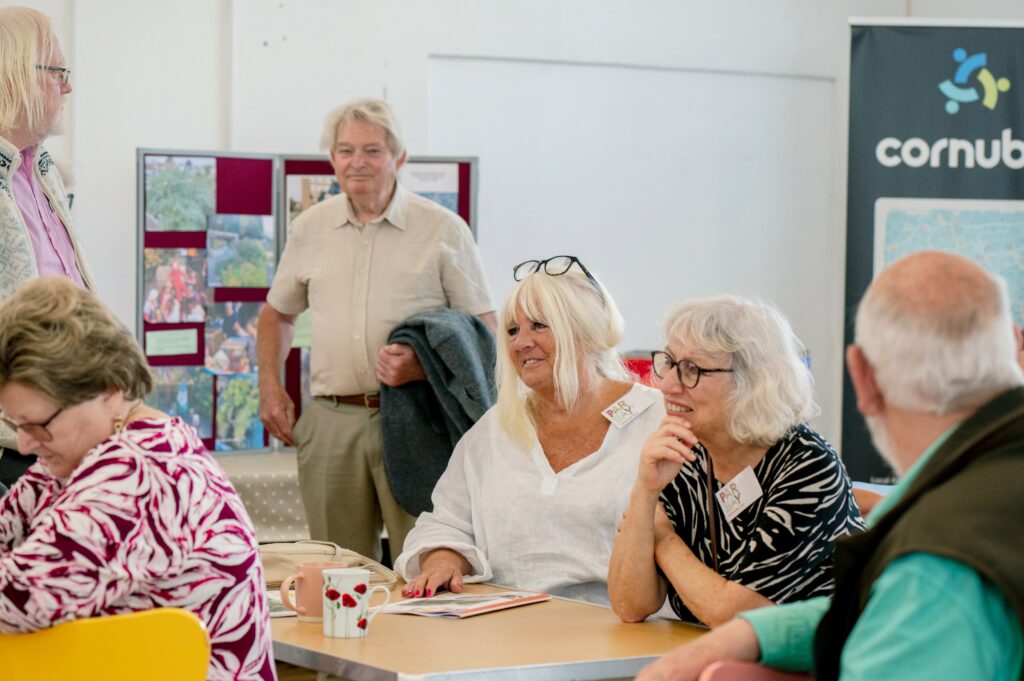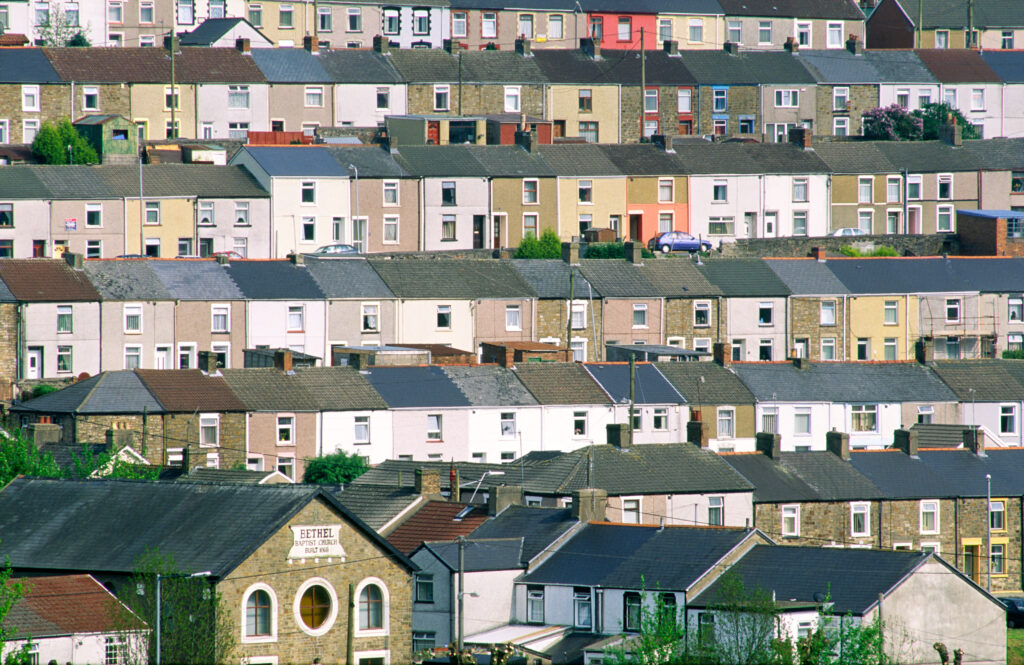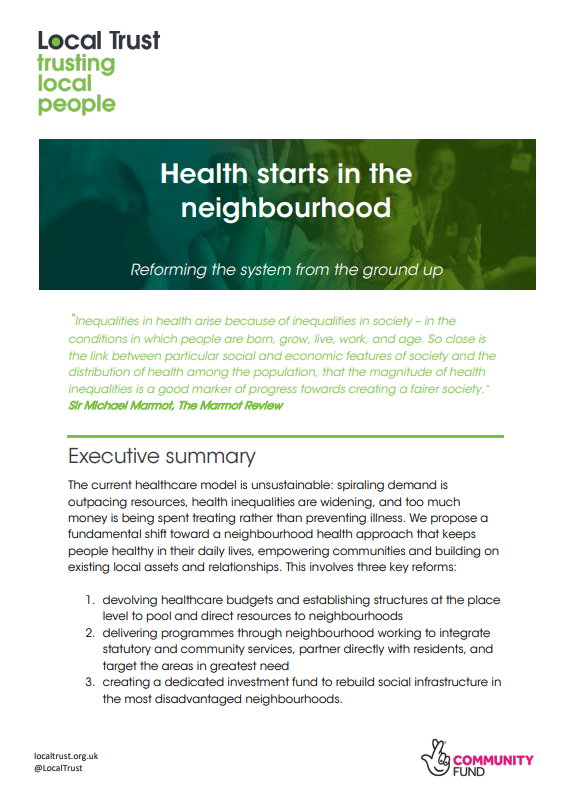Communities are the source of many local activities that help people stay connected, active, and healthy – from sports clubs and parents groups to food banks. But these vital community provisions have largely disappeared with funding cuts, concentrating health inequalities in the poorest neighbourhoods.
Our research shows that ‘doubly disadvantaged’ neighbourhoods that are both deprived and lack social infrastructure experience significantly worse health outcomes than other areas. This comes from a greater risk of developing preventable illnesses, leading to higher rates of economic inactivity due to poor health.
Our evidence, driven by over a decade of Big Local communities delivering health-focused initiatives, suggests that reinvesting in social infrastructure and allowing communities to take the lead is vital to any attempt to reform the health system.
Our partnership with the NHS Confederation
We’re working closely with the NHS Confederation to promote and test community-led approaches to health and wellbeing in some of England’s most deprived neighbourhoods. Together, we are:
- Influencing and informing changes to health and care at a national and system level
- Running a programme of action research with community-led organisations
- Building a community of practice with local leaders, sharing learning and driving change.
See the programme of work here
The case for change
We worked with the NHS Confederation and PPL on the report, The case for neighbourhood health and care. The report underlines that the support to change lives effectively exists in our neighbourhoods, but only if public sector resources and community assets can be brought together in the right way.
This report highlights learnings from Big Local areas including W12 Together, who have worked to find community-based solutions to improve access to health, and Par Bay Big Local, who have successfully set up initiatives to address social isolation and youth mental health.
Here, Jenny Chigwende, chair and health lead of W12 Together Big Local, explains why community-led health initiatives are so important:
Our programme of Action Research
We are collaborating with six current and former Big Local areas to explore how communities and health systems can work together to understand and address local health needs.

Resetting the relationship: towards a social model of health creation and care
Our policy sprint, held in February 2025, brought together health sector leaders to explore what a neighbourhood model of healthcare could look like and how to integrate it into the NHS.

Health starts in the neighbourhood
Our paper Health starts in the neighbourhood is based on the idea that conditions for good health are shaped by the communities where people live. It proposes three key shifts to rebalance the system toward prevention and give communities a stronger voice.


